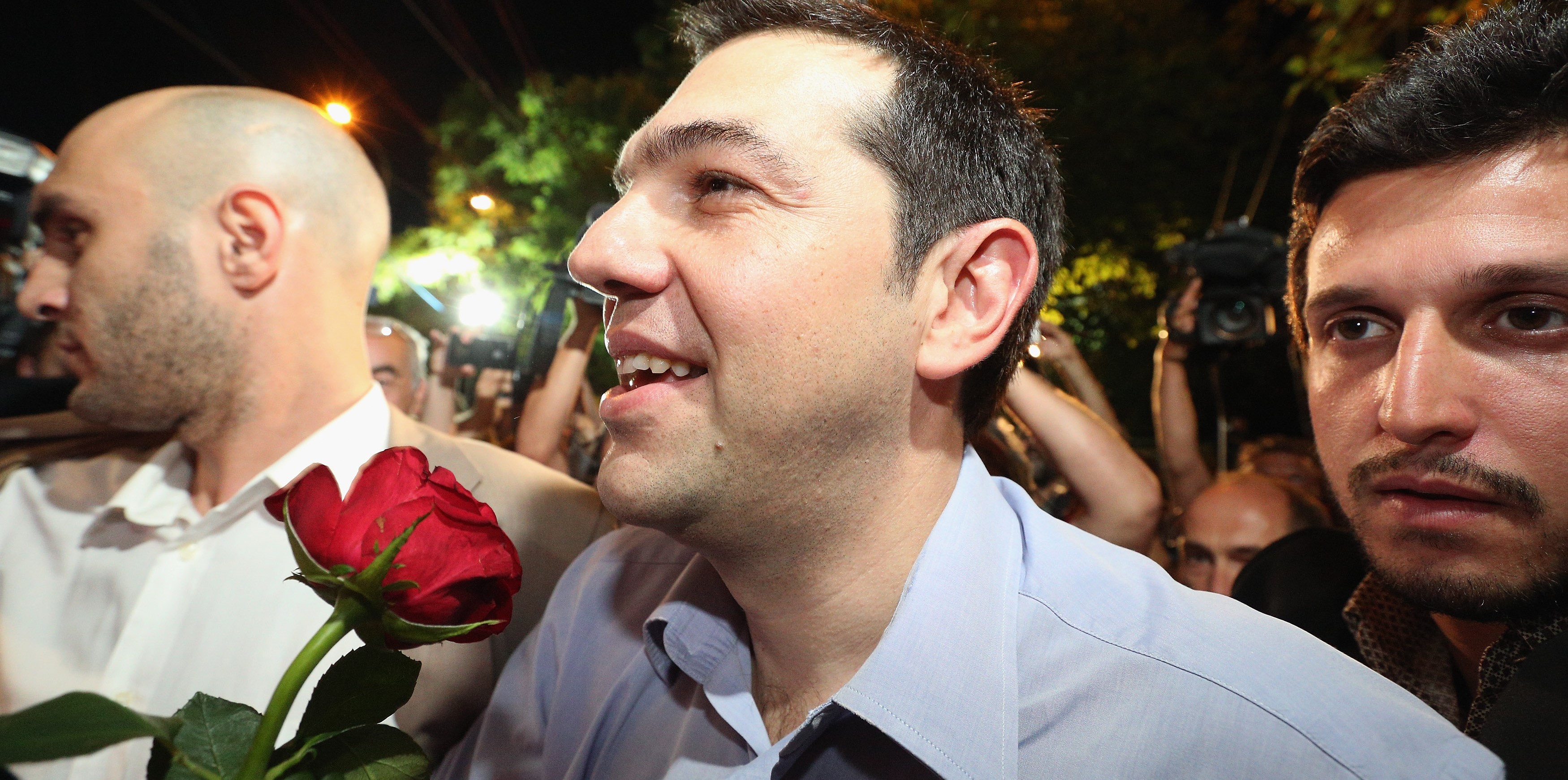Radical left victory in Greece
When Greek voters decided to rewrite the script of what had become their own national tragedy it boosted anti-austerity campaigners across Europe.
Austerity measures forced on Greece had left an economy in ruins, growing queues at soup kitchens, rising suicides, poverty and half their youngsters without jobs.
The financial “troika” of the European Commission, European Central Bank and the International Monetary Fund pushed austerity on Greece for five years. National sovereignty was ripped up and a whole range of measures, including privatisation, was forced down Greek throats.
Syriza – a coalition of the radical left – stormed to victory in the Greek elections. They wiped out a right-wing government, and ended agonisingly short of an outright majority. They have formed a coalition with the small right-wing anti-austerity Independence party.
The rejection of austerity in Greece rumbled around Europe. Podemos in Spain – an anti-austerity party trying to throw off the yoke of international debt – has been buoyed by the Greek vote. So have the French socialists. And Italian Government ministers have made the same sounds about austerity having run its course. Have Greek voters shown the way?
“What happened in Greece over five years was a catastrophe as great as hit America during the great depression,” says Paul Mason, Channel 4’s economic editor.
“It is difficult to understand how ordinary people coped and how voters in a generally conservative – with a small c – country turned to Syriza, a radical left alternative.”
Fuller story
Mason helped produce a documentary short, with some seed money from Unite, probing how that happened. He’s working with a team of Greek freelances trying to fund a longer documentary – comfortably over an hour. It’s about finding the fuller story and telling it in-depth.
Mason is clearly passionate about telling this story. “When a snap general election was called it was hard for the mainstream media to understand that a victory for the radical left was even possible” he told Unite Live.
“They did not understand the political sea-change taking place. “We talked to brothel owners having to turn away married women who were trying to become prostitutes. We talked to graduates with three precarious jobs earning a total of €400 a month.
“And when you get up into the mountains and rural areas you then find austerity has meant two-thirds of the land has been repossessed, there has been a spate of suicides. Syriza are the only politicians to have gone into these rural areas – used to voting for centrist parties – and you find 30 per cent to 40 per cent of people voting for the radical left.
“However thoroughly you cover this as news, what you’re missing is depth and context and with this collaboration I am determined to put Greek eyes behind the camera lens, and tell the story at the grass roots.”
Mason and his team want to explore the deeper reasons and why Greece voters were not frightened away from a radical alternative. He stresses the “importance of time” and concerns over the rise of fascism in Greece.
“Fear probably fell away with the years of austerity. The first year you lose your job and are concerned about the future, by the third year there is repossession and by the fifth you realise the future is forever and there is less to lose.” Mason wants to help find the story and tell it.
“We need to really look at what happened and tell it before the myths set in. Syriza has compromised, for example, but has bought time. “If it hadn’t compromised it would have been the shortest serving radical Government in history. At this stage we don’t know how the Syriza story will end.”
But we do have an idea of where the story started. And the first tears have started to show in the net of austerity that has been cast over Europe. The Germans are the public villains but they have strong support from the UK’s Tory-led coalition and from other right-wing parties across Europe.
Even within the German coalition, the differences are showing. Despite this, the austerity agenda has held its ground up to now. Syriza accepted a compromise which bought them another four months to reach a wider agreement on Greek debt and loans repayments.
There will be no quick fixes. The Greeks, of course, know the difference between a marathon and a sprint. And that the 12 Labours of Hercules took 12 years. As Mason says, Greece has made a start; we know some of the story, not all of it. And it needs to be told before the modern myths are written.
• If you would like to help raise the funds to help tell this story please go to this page.
 Like
Like Follow
Follow
